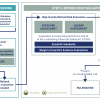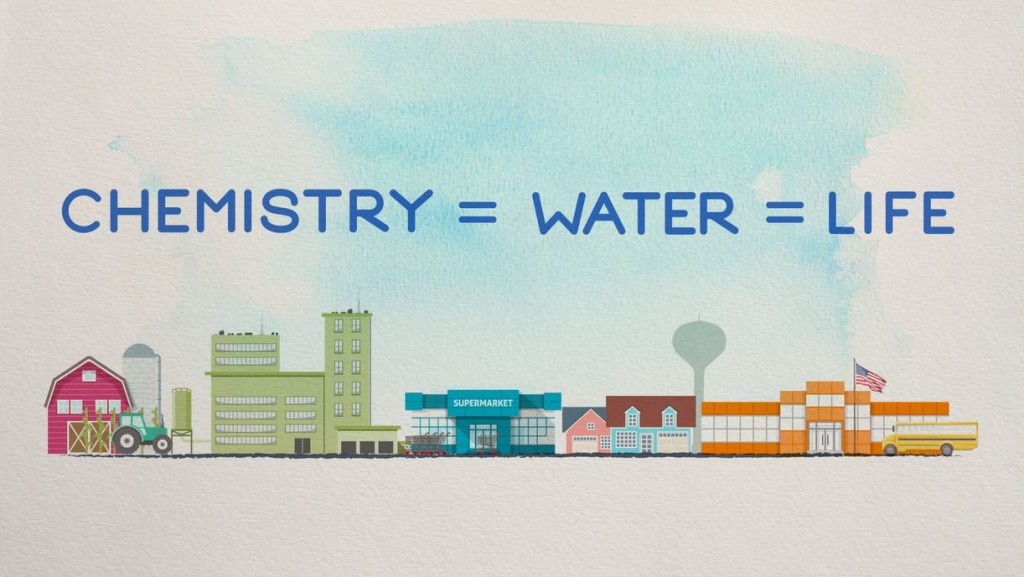This week, June 12-18, marks the U.S. Occupational Safety & Health Administration’s (OSHA) inaugural Safe & Sound Week, a nationwide effort to help workers and managers understand the valuable role that occupational safety and health programs can play in helping to prevent workplace accidents. As a Safe & Sound Week Partner, ACC joins OSHA and […]
- On the road with #ACCaugust - 2015
- Chemicals in food: Top chemical food myths debunked…naturally! [video]
- Nanotechnology could be the next big thing in medical care
- Fueling Export Growth (Part 2 of 2): Why the expected surge in U.S. chemicals exports will depend on our country’s ability to deliver on its ambitious trade agenda
- Fueling Export Growth (Part 1 of 2): U.S. chemical exports linked to natural gas could double by 2030; plastics products leading the surge
- Chemical industry achieves record-setting process safety gains June 12, 2017
- Spray Foam Coalition continues sponsorship of DOE’s Race to Zero Student Design Competition May 25, 2017
- Plastics-to-fuel turns “waste” plastics into a valuable resource – while saving other resources in the process May 16, 2017
Welcome to the blog of the American Chemistry Council
Spray Foam Coalition continues sponsorship of DOE’s Race to Zero Student Design Competition
As we have for the past few years, the Spray Foam Coalition of the American Chemistry Council (ACC) Center for the Polyurethanes Industry (CPI) sponsored the 2017 U.S. Department of Energy (DOE) Race to Zero Student Design Competition. This year, the first-place winner in the small multifamily housing contest – from Georgia Tech – used […]
Plastics-to-fuel turns “waste” plastics into a valuable resource – while saving other resources in the process
A new study by Argonne National Laboratory (ANL), part of the U.S. Department of Energy, found that converting non-recycled plastics into diesel fuel can reduce greenhouse gas emissions by up to 14 percent, water consumption by up to 58 percent, and traditional energy use by up to 96 percent compared to diesel production from traditional […]
How can we fix our nation’s infrastructure problems? Put competition to work
Virtually every day in the U.S., we are flooded with more and more reports about growing problems with the nation’s crumbling water infrastructure. While the problem was first brought to the public’s awareness in Flint, water systems are failing in countless other cities, from Cleveland, to New Jersey, to Massachusetts. Now, we are seeing more […]
Who put BPA in the water?
The days of rivers catching on fire from high levels of pollution are long gone. These days Americans almost take it for granted that the rivers, streams and lakes around us are safe and clean. Nevertheless, there are still concerns about the potential for health risks to people and the environment from trace levels of […]

Chemistry 101 at #AIACon17
The American Institute of Architects’ Conference on Architecture brings together thousands of architects and building and design industry professionals this week in Orlando, with the opportunity to see the latest innovative building products and meet with companies that support the industry. American Chemistry Council members are showcasing products that enable the latest efficient, durable and […]

Helping EPA ensure its chemical review ‘pipeline’ under Lautenberg Act delivers as Congress intended
The Lautenberg Chemical Safety Act (LCSA) is described as having three “framework rules” – Inventory Reset, Prioritization, and Risk Evaluation. All three are designed to work together to set the stage for, and then deliver, efficient and streamlined risk evaluations of chemicals under the federal program. EPA has described this ongoing process of prioritization and […]
Proposed marine debris legislation helps fortify industry’s ongoing work
On March 29 Senators Sullivan (R-AK), Whitehouse (D-RI) and Booker (D-NJ) introduced the bipartisan Saving Our Seas Act, which also included Senators Coons (D-DE), Inhofe (R-OK), Murkowski (R-AK), Peters (D-MI) and Tillis (R-NC) as cosponsors. In addition to reauthorizing National Oceanic and Atmospheric Administration’s (NOAA) Marine Debris research program, the bill underscores the need for […]
‘BPA-free’ meets ‘fake news’
Thanks to years of attention to bisphenol A (BPA), used primarily to make polycarbonate plastic and epoxy resins, there is now quite a bit of attention to various alternatives described generically as “BPA-Free“. Many manufacturers proudly apply a BPA-Free label to their products, even to products that never contained BPA in the first place. The […]
Working together to improve EPA’s proposed rules for chemical prioritization and risk evaluation under the Lautenberg Act
As efforts continue in earnest to implement the Frank R. Lautenberg Chemical Safety for the 21st Century Act (LCSA), ACC sees two areas in particular where industry and the Environmental Protection Agency (EPA) can work together closely to put the program on a solid footing – prioritizing chemicals for review and conducting efficient risk evaluations. […]









